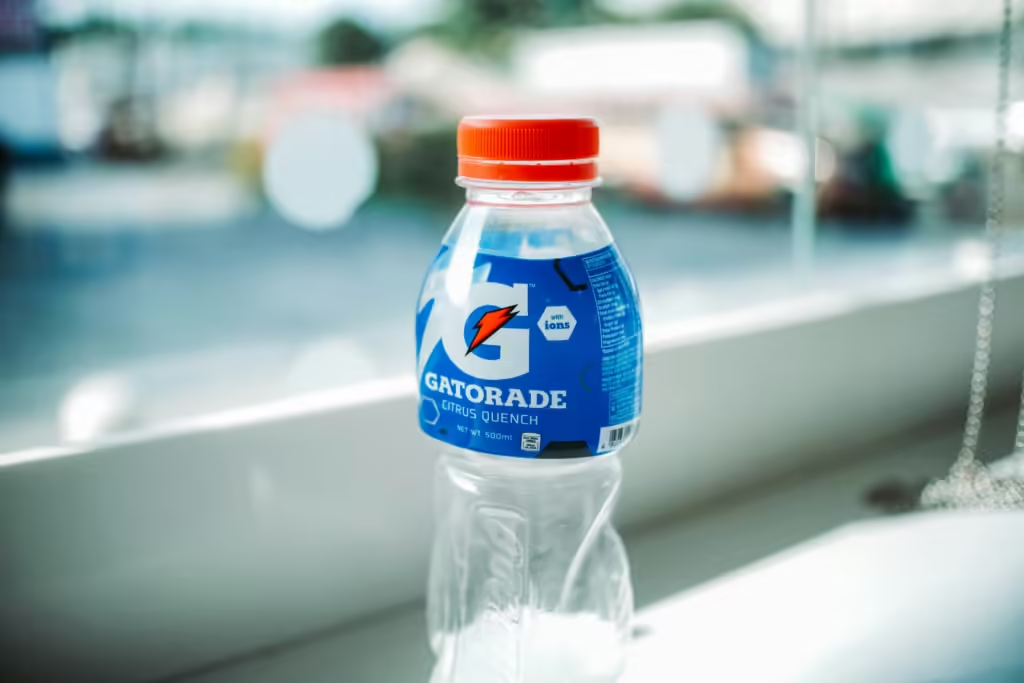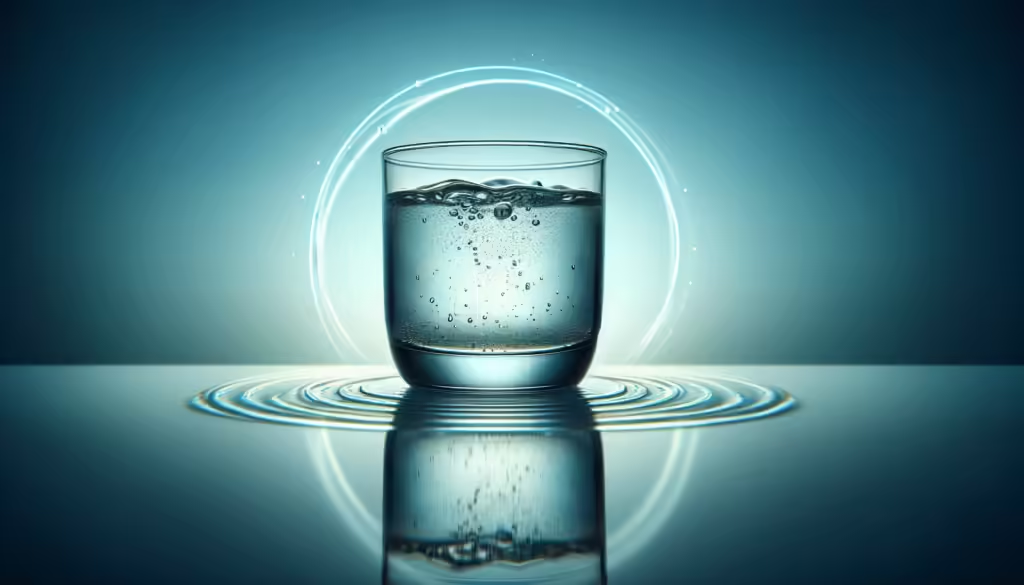What is the recommended daily intake of water?
Have you ever wondered how much water you should drink every day? It seems like a straightforward question, yet it’s one that has puzzled many and triggered numerous debates among health experts, scientists, and laypersons alike. Understanding the recommended daily intake of water is more than just figuring out a number. It means diving into a host of factors, from your personal health to environmental conditions that influence your needs.
Water intake is paramount for your survival and health maintenance. The goal here is to provide you with a detailed, professional analysis rooted in credible research. This will help you comprehend the recommended daily water intake and how it impacts your life.

This image is property of images.unsplash.com.
Table of Contents
The Basis of Water Recommendations
Let’s start by understanding what guides these recommendations. Historically, water intake advice has been as much about convenience as necessity. Early guidelines developed in various cultures and medical traditions suggested amounts based on activity levels, weather, and available water sources. Today, however, science offers a much more detailed analysis.
The Institute of Medicine (IOM) provides one of the most widely recognized daily water intake guidelines. The IOM suggests that men and women should aim for approximately 3.7 liters (or about 13 cups) and 2.7 liters (or about 9 cups) of total water per day, respectively. These figures include all beverages and the moisture content of food.
Historical Context
In antiquity, methods to determine water necessity were rudimentary at best, often based on trial-and-error, personal experience, or subjective judgment. Despite the lack of precise measurements, ancient civilizations understood the importance of water to human health and productivity.
Throughout history, from Roman aqueducts to modern plumbing, access to fresh water has remained a vital human concern. The guiding principle has always been observing the natural indicators of thirst, which remains a basic yet effective guideline even as modern science seeks to quantify hydration needs more precisely.
Present Day Considerations
In today’s world, with its fast-paced demands and varying lifestyle choices, there are considerable factors to consider when determining your individual water requirements.
Key Influencers on Individual Water Needs
Physical Activity: Increased physical activity raises your body’s need for hydration. Exercise and labor-intensive tasks escalate sweat production, necessitating more fluid intake to compensate for losses.
Weather and Climate: Hot and humid conditions can cause your body to sweat more, thereby increasing your water needs. On the other hand, during cold weather, your body’s thirst sensation might not be as apparent, but hydration remains equally vital.
Health Conditions: Certain medical conditions and medications can influence how much water you should consume. Conditions like kidney disease, heart problems, and diabetes may necessitate a tailored approach to hydration.
Dietary Choices: High-sodium diets, increased consumption of dehydrating beverages (e.g., alcohol and caffeinated drinks), and specific diets may tilt the balance of necessary hydration.
Understanding how these factors apply to you can guide not just your hydration habits but your broader approach to health and wellness.
Analysis of Current Trends
Recent studies have shifted towards a more personalized approach to hydration. Technology is also playing a role, with apps and smart water bottles offering real-time monitoring and reminders, delivering a more tailored daily goal based on current activity levels and environmental conditions. Moreover, society’s increased awareness of health and wellness importance has made ‘hydration’ a popular focus in self-care regimes worldwide.
Exploring Key Concepts
Providing a deeper understanding of different water intake recommendations requires delving into some key concepts and debunking common myths.
The Myth of Eight Glasses
One of the most enduring hydration myths is the “8×8 rule,” suggesting eight 8-ounce glasses of water per day. While it’s a simple guideline and easy to remember, it doesn’t necessarily fit everyone’s needs. It’s important that you listen to your body, as individual water needs can vary significantly.
Hydration through Food
Did you know that approximately 20% of your daily water intake can come from the food you eat? Fruits like watermelon and vegetables like cucumbers have high water content, contributing significantly to your hydration status.
Hydration Indicators
Rather than strictly adhering to a set water intake number, pay close attention to your body’s signals. Thirst, while being an obvious indicator, isn’t always reliable, especially in older adults and athletes. Monitoring the color of your urine can be a more accurate gauge; pale yellow is generally a sign of good hydration.
Case Studies: Real-world Applications
Case Study 1: Marathon Runners
Marathon runners represent an excellent example of individuals with heightened water intake needs. Before a race, runners are encouraged to “carb-load,” or increase carbohydrate intake, along with strategic hydration. During the run, they often rely on sports drinks to replenish both fluids and electrolytes lost through sweat. Post-race strategies involve rehydration and recovery drinks to restore balance effectively.
Case Study 2: Office Workers
In contrast, consider a typical office worker, who may spend long hours in a sedentary environment with limited physical movement. For them, the challenge lies in maintaining regular hydration habits amidst a busy work schedule. Setting reminders to drink water and having a glass constantly at your desk are simple yet effective strategies.

Analytical Perspectives
When examining the topic of water intake, it’s essential to present a balanced view. Different experts may agree on the basics yet differ when it comes to specifics like supplementation with electrolytes or the need for special filtration systems. Consider the following table for a comparative view of different perspectives:
| Aspect | Perspective 1: Traditional Hydration Guidelines | Perspective 2: Modern Science-Driven Approach |
|---|---|---|
| Daily Intake | Fixed amounts (e.g., 8 glasses/day) | Flexible amounts based on individual factors |
| Sources of Water | Primarily water and beverages | Includes high-water-content foods |
| Monitoring | Thirst and general advice | Personal devices and urine color indicators |
| Influence of Diet | Less considered | Integrated approach to consider diet impacts |
| Health Conditions | Limited advice on customization | Recommendations tailored based on medical advice |
Evaluating Impact
Understanding the implications of varying perspectives on water intake can enhance your overall health strategy. Let’s consider the impact on different facets of daily life:
Health and Well-being: Adequate hydration supports everything from mental clarity to physical performance. Chronic dehydration has been linked to fatigue, headaches, and more severe health issues.
Environmental Impact: The boom in bottled water consumption raises environmental concerns. Prioritizing tap water and reusable bottles can have a positive environmental impact.
Social Outcomes: In regions facing water scarcity, understanding sustainable water use becomes vital. Access to clean water is a critical global issue impacting millions.

Future Directions and Predictions
Looking to the future, we anticipate that personalized water tracking and smart-home technology will only continue to improve. Innovations in wearable technology and health apps that offer daily hydration goals based on both activity and environmental data could make maintaining optimal hydration effortless. Furthermore, public health policies might shift to emphasize not just water consumption quotas but sustainable practices in obtaining and using water.
Insights on Societal Implications
In societies with regular access to water, education on maintaining hydration without over-reliance on bottled water could be emphasized. Community programs may also focus on innovative ways to conserve water without compromising on health needs, especially in water-scarce areas.
What implications do you think personalized hydration tracking technologies might have on your life?
Conclusion
To wrap up, the discourse on the recommended daily water intake unveils a complex yet fascinating topic, woven into the fabric of our daily lives. Synthesizing historical practices with current scientific understanding, the analysis highlights a range of factors influencing individual water needs, from lifestyle to environment and health conditions.
The intricate balance of adequate hydration underscores its importance across a spectrum of daily and societal contexts. By adopting thoughtful and personalized hydration strategies, you enhance both personal health and contribute toward broader global conservation goals. What steps will you take to ensure optimal hydration in your own daily routine?

How much water should you drink?
Exploring The Impact Of Digital Health Innovations On Traditional Medicine

